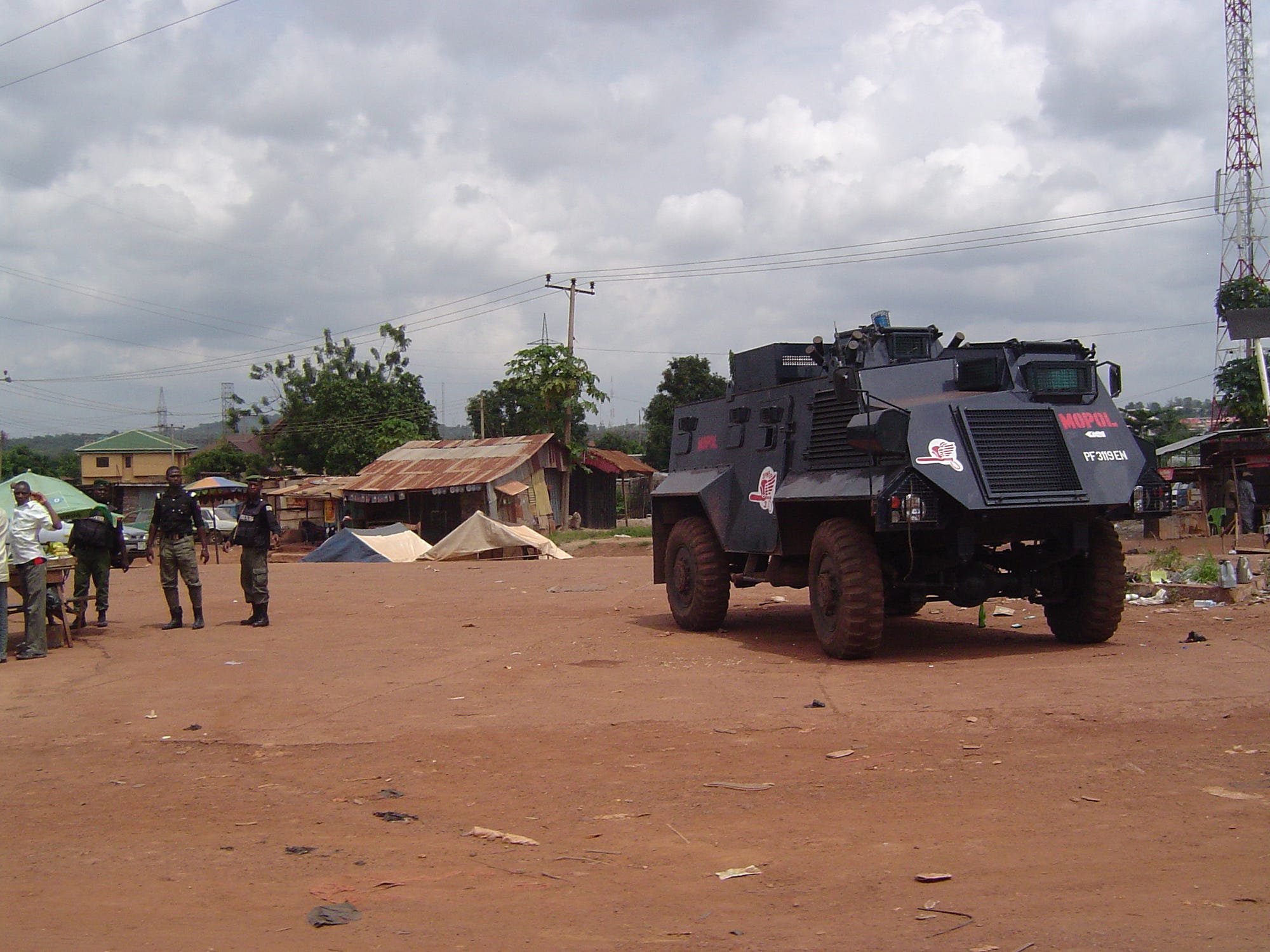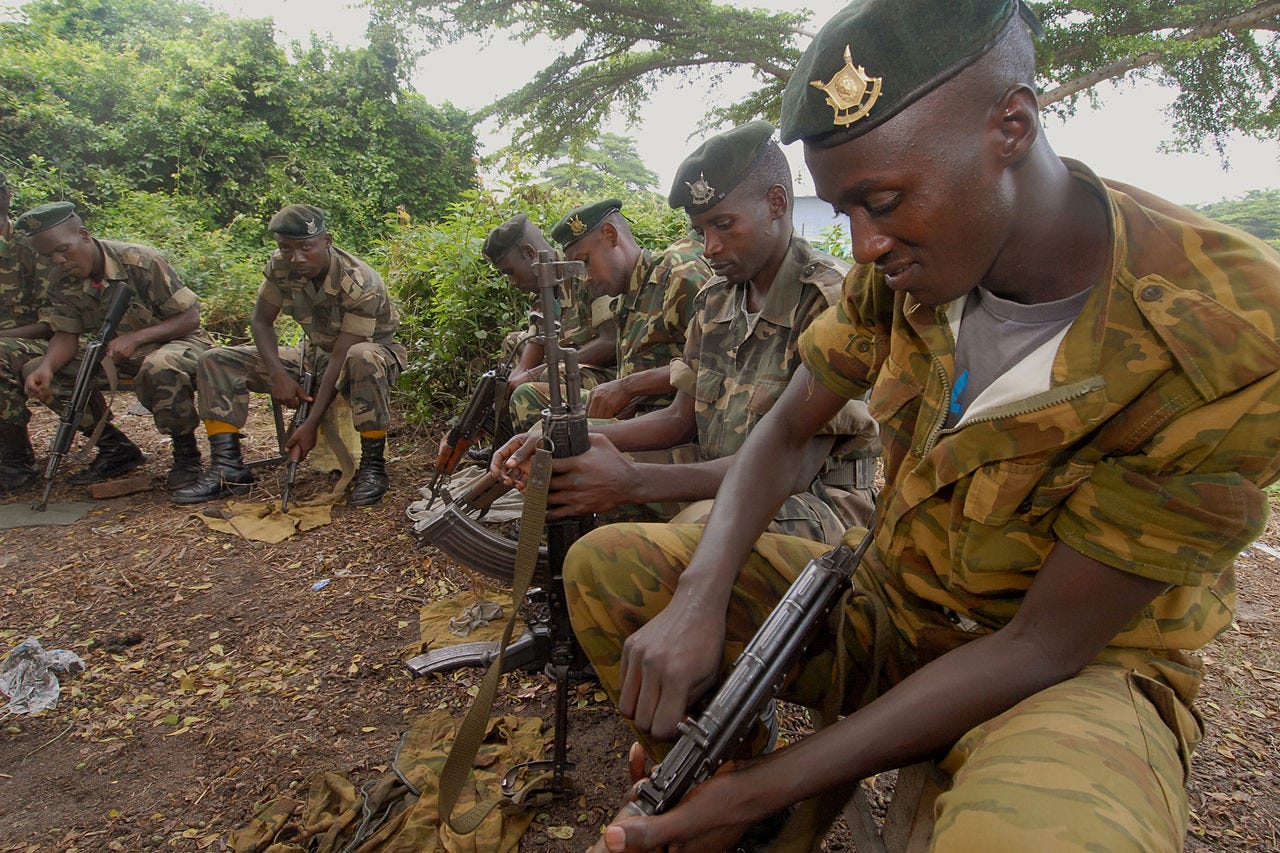2014 wasn’t exactly what you’d call a peaceful year for Africa, although itwas better than the post-Cold War mayhem of the 1990s. And we predicted as much in a similar post in early 2014.
From the civil wars in South Sudan and Central African Republic, to insurgencies in the Sahel and Nigeria and piracy in the Gulf of Guinea, Africa’s worst crises drag on … and will probably continue to do so through 2015.
South Sudan’s civil war is one year old and still going strong. Neither Pres. Salva Kiir nor his challenger Riek Machar have any incentive to stop fighting, at least not until the next rainy season makes military maneuvers impractical—five months from now.
During the rainy season, the possibility exists for a peace treaty. In theory. But in practice, this will only happen if one or both sides suffers a major military defeat or suffers serious international sanctions. Neither is likely.
We hope we’re wrong about this, but our guess is that South Sudan’s civil war will see its second anniversary.
Of course, the war in South Sudan has its roots in the country’s incredibly violent recent history—in particular, its secession from Sudan. The South’s northern neighbor may have lost a huge chunk of its territory when the South seceded, but its main internal conflicts continued.
The most prominent of those, the civil war in Darfur, has slipped from the headlines in recent years, but in fact it’s as bad as ever. The same goes for the genocidal campaign that the regime in Khartoum is perpetrating against the people of the Nuba Mountains.
And several other smaller conflicts are simmering
There’s little indication that any of this will change in 2015. If it does, the impetus will likely be regime change. President Omar Al Bashir’s throne has looked shakier than ever over the last two years, with major demonstrations challenging his rule in the capital.
As now-former heads of states from Tunisia’s Ben Ali to Burkina Faso’s Blaise Compaoré can attest, its hard hanging on to power indefinitely.
Like in Darfur, the conflict in Central African Republic also lost some of its media appeal in 2014. Peacekeeping forces have regained a measure of control in parts of the country, although the caretaker government of Pres. Catherine Samba-Panza is still borderline powerless.
With France shrinking its military contribution in CAR and rebels and militias still in control of much of the countryside—as well as parts of the capital—the country is looking at an uneasy and at times violent stalemate.
 Above—Nigerian Mobile Police officers and their armored vehicle. At top—Tuareg milita in Mali. Photos via Wikipedia
Above—Nigerian Mobile Police officers and their armored vehicle. At top—Tuareg milita in Mali. Photos via Wikipedia
Boko Haram is worse than ever
If there was anything less worthwhile in 2014 than believing in the longevity of South Sudan’s peace treaties, it was listening to the Nigerian military’s frequent announcements that it was just about to defeat the Boko Haram insurgency.
Yes, the military scored some victories here and there, but in general Boko Haram is as strong as it ever was.
More people died in the conflict in 2014 than in any previous year. And while the Nigerian government throws more and more troops and money at the problem, this is unlikely to end the crisis any time soon.
There’s some hope that once this year’s hotly contested presidential elections are over, the political class will get its act together and sort out the insurgency in the north as well as some of Nigeria’s other pressing problems.
But that’s a tenuous hope at best—especially since Boko Haram was, early on, a useful pawn in Nigeria’s great political chess game. By now the group has fractured and evolved beyond the control of the political masterminds who nurtured its growth.
Al Qaeda-affiliated groups are still active in the Sahel, especially in northern Mali. While the big terror attack that we predicted fortunately didn’t take place in 2014, the risk of a large-scale terrorist operation—comparable to the attack on the In Amenas natural gas facility in 2013—remains all too real.
The conflict between secessionist Tuareg rebels and the Malian government likewise continues. At the moment the country is holding together mostly thanks to U.N. and French forces and some determined diplomacy.
Outside pressure will likely continue to suppress large-scale conflict, but the potential remains for hostilities between the Tuareg and the army.
Meanwhile in Libya, there’s little doubt that the violent standoff will continue between secular forces loyal to Gen. Khalifa Haftar and Islamist militias.

Elections as a risk factor
All these conflicts have one thing in common—they’re all well underway. But what new conflicts could emerge in 2015?
It will be an interesting year, because many conflict-prone countries have important elections on the calendar. Nigeria, for one. Also Ivory Coast, where the last presidential election reignited a dormant civil war.
In West Africa, the tiny country of Togo has already seen huge demonstrations against the continued rule of long-time president Faure Gnassingbé, who is running for re-election in 2015.
Togo could potentially go the way of Burkina Faso, where an attempt by Pres. Blaise Compaoré to abolish constitutional term limits led to his violent ouster.
On the other side of the continent, Burundi—a fragile country prone to civil war—will also hold elections.
Honorable mentions include the ongoing conflicts in Democratic Republic of the Congo, the ramifications in Cameroon of the Boko Haram insurgency and CAR’s civil war, Egypt’s and Tunisia’s fighting with domestic terrorist groups or the Western Sahara conflict.
Plus the situations in Somalia, northeastern Kenya and the potential for war between Ethiopia and Eritrea. 2015 could be a violent year for Africa.
No comments:
Post a Comment